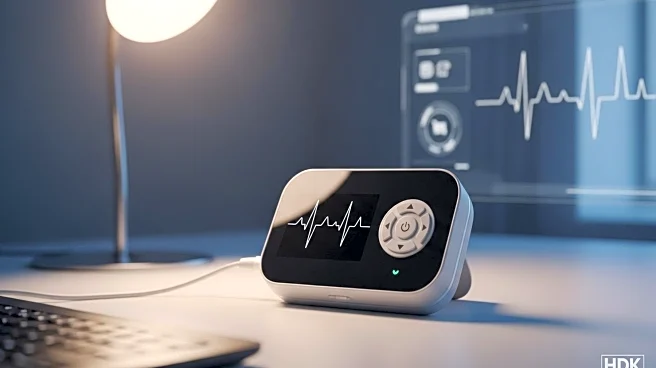What's Happening?
Independent remote monitoring (RM) platforms are redefining cardiac care by offering vendor-neutral solutions that consolidate data from various cardiac devices. These platforms provide a unified view of patient data, enabling more efficient and personalized care. A study published in Heart Rhythm, the EVIDENCE-RM study, demonstrated that patients monitored through independent platforms experienced significant reductions in mortality and hospital admissions compared to those using traditional manufacturer-aligned systems. The study highlights the potential of these platforms to improve patient outcomes and streamline clinical workflows.
Why It's Important?
The shift towards independent RM platforms addresses the fragmentation in cardiac care, where proprietary systems often limit interoperability and data standardization. By offering a comprehensive view of patient data, these platforms enhance clinical decision-making and reduce the cognitive load on healthcare providers. The improved outcomes observed in the study suggest that adopting such platforms could lead to better management of chronic cardiac conditions, reducing healthcare costs and improving patient quality of life.
What's Next?
As healthcare systems increasingly adopt independent RM platforms, there may be a push for broader integration with electronic health records and clinical workflows. This could facilitate more seamless data sharing and collaboration across care teams, enhancing the overall efficiency of cardiac care delivery. The continued development of AI-supported algorithms within these platforms may further personalize patient monitoring, allowing for earlier interventions and more targeted treatments.
Beyond the Headlines
The adoption of vendor-neutral RM platforms reflects a broader trend towards precision medicine and data-driven healthcare. By prioritizing interoperability and personalization, these platforms contribute to more equitable care delivery, particularly for patients in underserved areas. The focus on standardization and intelligent data analysis may also influence future innovations in digital health technologies.








